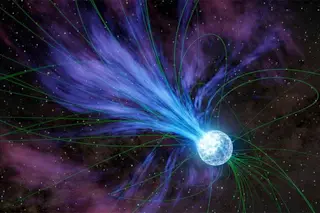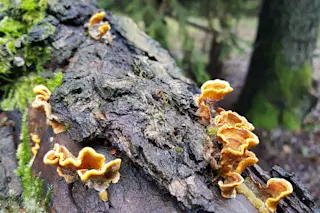Yes, sound can definitely produce heat. But you can’t cook food from yelling at it (sorry Gordon Ramsey).
What we call sound is really a patterned, regular, ordered movement of individual particles. When we speak to each other, we force air through the small opening of our throat and shape it with our mouths. This makes the air molecules bunch together in specific patterns on their way out. Those air molecules then expand again, pushing against their neighbors, which makes them contract, and so on.
This repetition of squeezing and expanding creates a wave that travels through the air, eventually hitting your eardrum and forcing it to vibrate in the same pattern, which your brain helpfully interprets as sound.
Motions of particles also creates heat, but in that case the movement is disordered and random. If you sit by a nice, warm fire, the infrared radiation emitted by the flames ...















